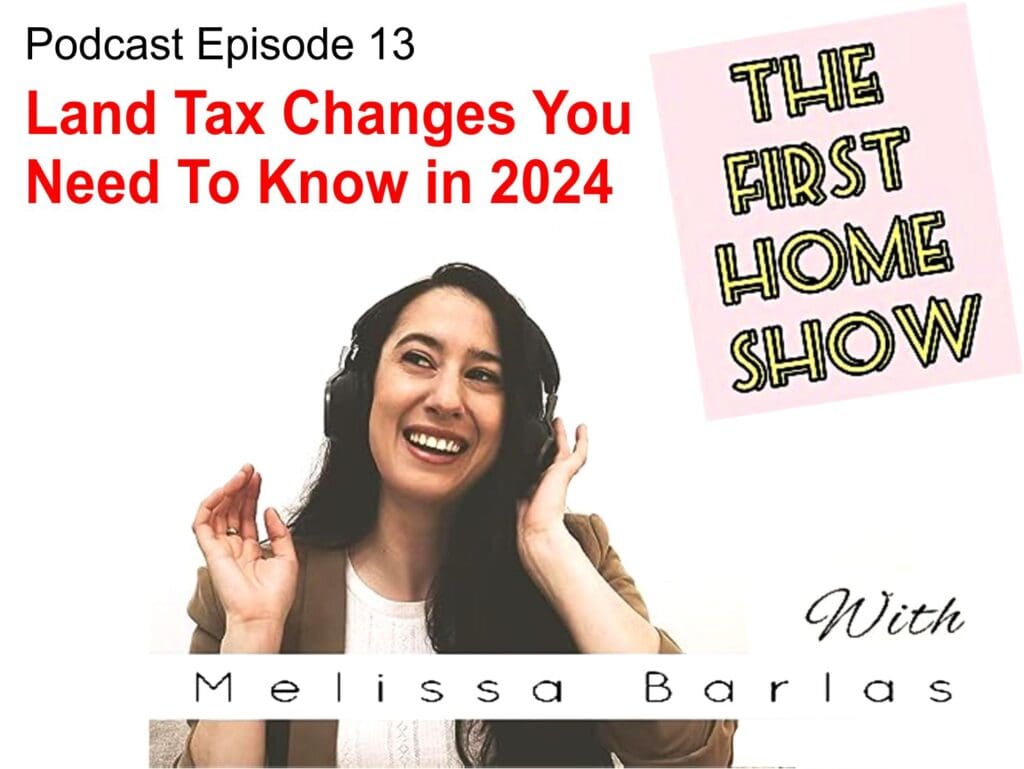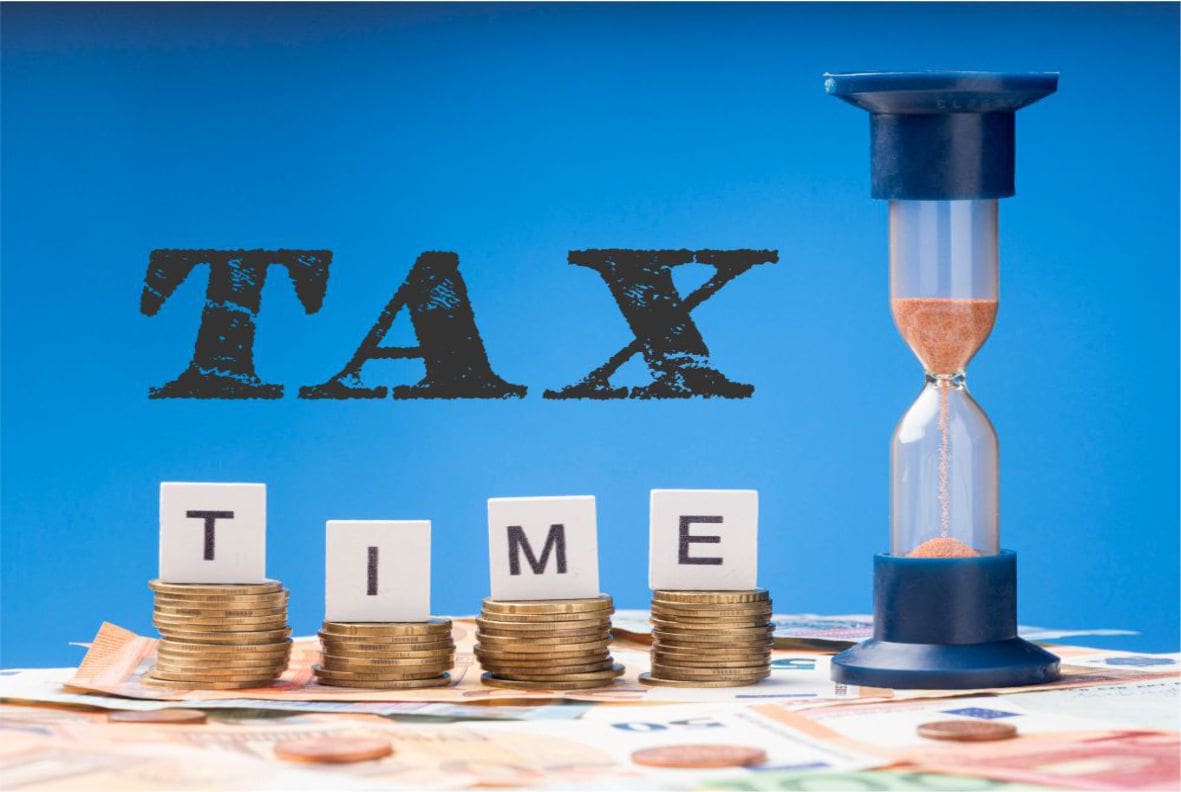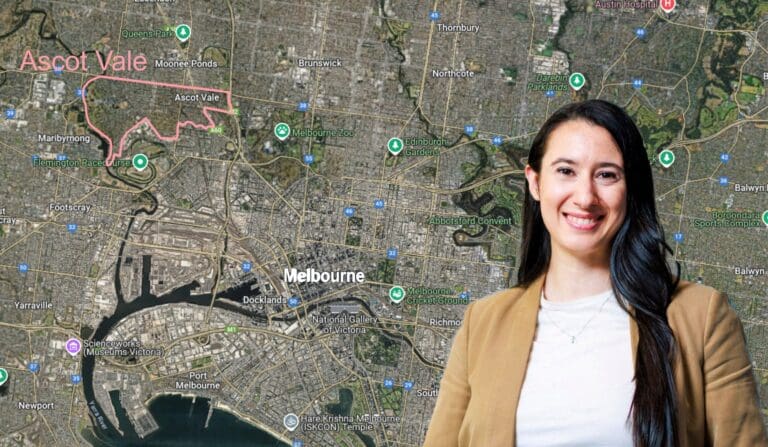4 Major Victorian Land Tax Changes
Since the first of January 2024, the Victorian Government announced adjustments to land tax rates and thresholds across the Victorian State as part of their COVID debt repayment plan. Please be mindful that land tax and state taxes are subject to change.
Now, let’s get into the specifics. There were many land tax changes, and we won’t go through all of them. We’ll explain the 4 major ones. Quite a few exist, but I wanted to stick to the main ones that would affect most people.
Getting into the legal side of things, it is important to note that this is basic general information; we highly recommend if you’d like to explore this topic further, speak to your conveyancer or your chartered accountant for more information.
If you prefer to listen, check out our newest podcast episode of our First Home Show.

COVID Debt Repayment Plan Levy
Firstly, the most recent land tax update introduced by the Victorian government is the COVID Debt Repayment Plan. Properties with a site value of $50,000 or more will be charged with this tax. The COVID levy starts at $500 each calendar year and grows depending on the property’s site value.
As a result of this new tax, many investors are seeing substantial increases in charges for their land, as it gets charged on top of standard tax. Consequently, this tax led some people to sell their property in Victoria and then move to other states.
2 Vacant Property Tax Increase
The second change in the land tax is the Vacant Residential Land Tax regime. The tax regime is no longer applied just to metro Melbourne areas; it has expanded to the entire Victorian State.
Previously, the vacant residential land tax charged properties located within the inner or mid-Melbourne areas if they were vacant for six months or more. With the tax expanding from Melbourne to Victoria as a whole, the rate of land taxes also increased, reaching 3% in early 2024. If the owner can pay the standard 1% tax for three consecutive years, their tax rate will be raised to 3%.
3 Undeveloped Property Tax Increase

Thirdly, starting from January 1, 2026, if a metro Melbourne property that can sustain residential development remains undeveloped for at least five years, the owner will have to pay increased Undeveloped Property Tax. One exclusion from the tax is land areas that might be contempt contagious to a property like a tennis court, swimming pool, or land that is not sustainable to be developed on or used for residential purposes.
❗❗ IMPORTANT: You and your loved ones need to be aware of this tax. If you or somebody you know bought a lot and has not made any improvements or started development, you will be eligible for this upcoming tax.
4 Safeguarding Future Property Owners
Good news for property purchasers! As of 2024, sellers by law are not allowed to pass on windfall gains tax to a buyer under a sale contract. Landowners are liable to pay windfall land tax when the government when a government rezoning results in a taxable value uplift to their land of more than 100,000 in any subject to limited exempt exclusions. On a practical level, windfall gains tax might apply.
For example, if you’ve got a massive landslide in farmland that was rezoned as a residential property, and it resulted in a value uplift, then sellers can not pass that tax to a buyer under a contract of sale. What does this mean for property owners? If you own a property in Victoria, you may see an increase in your land tax bill come 2024.
How To Protect Yourself From Land Tax Increases

Stay informed about the new rates and thresholds
Don’t just rely on what the experts are saying. Occasionally, check the State Revenue Office website and other publications published by lawyers. Understanding how land tax changes apply to your property portfolios is important for making informed decisions.
Consulting Tax Advisors
Secondly, consider consulting with a qualified tax advisor or a property expert to assess the impact of these changes on your specific situation.
For example, you might want to speak to a good conveyancing lawyer or an experienced accountant with an understanding of investments. They can provide tailored advice and strategies to help minimize your land tax liabilities were possible.
Remain Proactive

Lastly, just stay proactive and adaptable. Property markets and tax regulations are constantly changing. Staying ahead of the curve is very important if you want to maximize your investments and financial security.
Get your quote today.
Relax knowing our experts are handling your property conveyancing.









